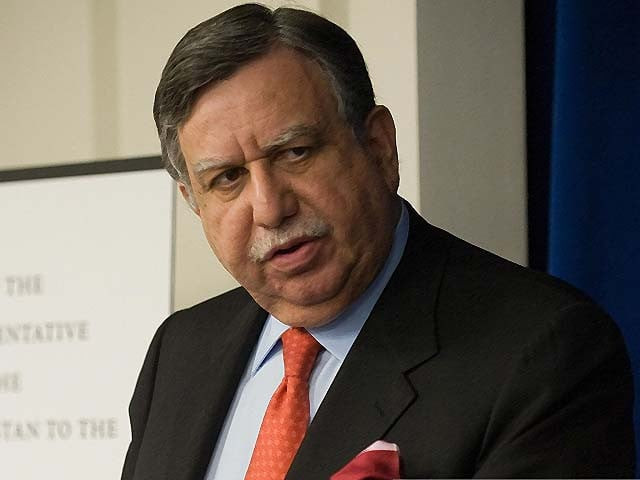No new taxes in mini-budget, says Tarin
We will not allow the IMF to impose more taxes on people, says Tarin

Adviser to the Prime Minister on Finance and Revenue Shaukat Tarin on Friday said the government would not impose any new taxes in the upcoming 'mini-budget', but it would withdraw some exemptions given to various sectors to increase revenue.
Talking to the media in Karachi, the finance adviser said that as per an agreement with the International Monetary Fund (IMF) reached in March this year, the government had agreed to generate Rs700 billion in taxes to receive the third tranche under the global lender’s loan programme.
"When I became the finance minister, I had said we will not increase taxes. We will not allow [the IMF] to impose more taxes on people who are already paying them."
He told reporters that during the talks, the finance ministry had not agreed to more taxation.
“The government convinced the IMF to bring down the revenue target to about Rs300 billion.”
Tarin said the IMF had asked Pakistan about the tax exemptions, which “distorted” the tax system.
“The IMF’s arguments were valid on such exemptions.”
The finance adviser said the IMF had asked Pakistan to give ‘targeted subsidies’ with an across-the-board sales tax rate of 17%.
“They say, ‘you [Pakistan] have imposed 17% sales tax on some [sectors], zero on some and 10% on others’.”
The adviser also questioned the gas subsidy to the fertiliser industry that amounted to Rs150 billion.
He added that the government had not imposed taxes on the sector either.
“Is the move was benefiting the farmers as well?”
The government will provide direct subsidies to farmers through the Ehsaas database, he said, hinting at an end to subsidies for the fertiliser sector.
Tarin also warned ‘speculators’, whom he blamed for a disproportionate exchange rate.
He added that as per the “real exchange rate”, the Pakistani rupee should be traded at around Rs165-167 against the US dollar, but due to speculators, the local currency was undervalued by Rs10.
Read Tarin attributes inflation to instability in exchange rate
He also shot down rumours that the rupee would be demonetised.
“The government will not take measures that would hurt the confidence of businesses or create distortion in the market,” Tarin said, adding that measures were on the cards to stabilise the rupee.
“The speculators will be defeated so don’t get into this kind of speculation. The rupee will move on both sides.”
On Monday, Pakistan had agreed to take Rs800 billion through a combination of cut in expenditures and slapping about Rs500 billion in taxes, including Rs20 per litre fuel tax, to revive the stalled $6 billion IMF programme.
“The tax collection target of the Federal Board of Revenue (FBR) has been increased to Rs6.1 trillion – an addition of roughly Rs300 billion – and the government will also have to get the State Bank of Pakistan amendment bill approved from parliament,” Tarin had said.
While revealing what the government would have to do in less than two months, Tarin did not hide details of what sounded like very harsh IMF conditions which, if implemented in letter and spirit, would not only consume significant political capital but also unleash another wave of inflation.
“Price stability, exchange rate of the rupee and the level of the interest rate will be the responsibility of the central bank in which the government will have no role,” Tarin had told reporters, while sharing details of what had been agreed with the IMF in the name of the SBP autonomy.
Energy Minister Hammad Azhar, who was accompanying Tarin at the media talk, had said there would also be another increase in power tariff in the next few months.
“It is currently estimated to be increased by about 50 paisa per unit but its exact quantum will be determined at the level of circular debt,” he had added.
The media talk was held hours after an announcement by the IMF about the measures that Pakistan would have to take to secure approval of the $1 billion loan tranche.
LIVE #APPNews : Advisor to PM on Finance @shaukat_tarin talking to media #Karachi https://t.co/H4jvIF7qem
— APP 🇵🇰 (@appcsocialmedia) November 26, 2021



















COMMENTS
Comments are moderated and generally will be posted if they are on-topic and not abusive.
For more information, please see our Comments FAQ